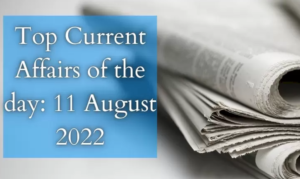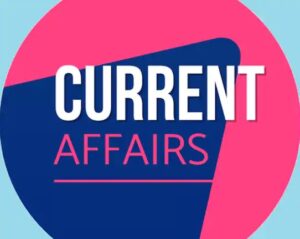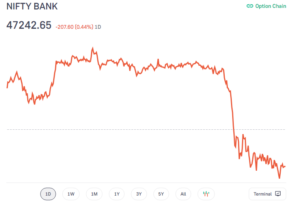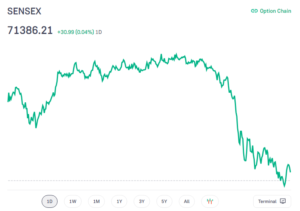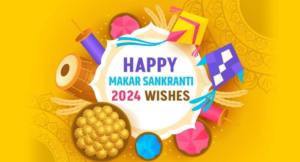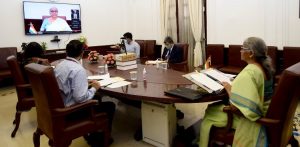
National Endangered Species Day 2022: 20th May
Every year on the third Friday of May, people across the globe observe National Endangered Species Day. This year the day is celebrated on May 20. This year, it marks the 16th National Endangered Species Day. National Endangered Species Day is celebrated with the main emphasis on conserving our planet Earth’s flora and fauna.
The day reminds human beings that they can do a lot to protect these species. National Endangered Species Day aim towards educating about the ways of conservation, restoration of the ecosystem and understanding of biodiversity.
The theme of National Endangered Species Day 2022:
The National Endangered Species Day theme 2022 is “Recovering key species for ecosystem restoration”. Every year the awareness campaign takes place around a theme.
History of the National Endangered Species Day:
On 28 December to lift up the importance of wildlife conservation and restoration efforts for all endangered species The Endangered Species Act of 1973 was signed into law. National Endangered Species Day was founded and started by David Robinson and the Endangered Species Coalition in 2006. Since 2006 third Friday of May is observed as National Endangered Species Day.
Wesley Morgan won William E. Colby award for his book ‘The Hardest Place’
Author and journalist, Wesley Morgan has won the William E. Colby Award 2022 for his military and intelligence writing. He was cited for his book “The Hardest Place: The American Military Adrift in Afghanistan’s Pech Valley.” The Colby Award, a $5,000 prize named for the former ambassador and CIA director William E. Colby, is given for “a major contribution to the understanding of military history, intelligence operations or international affairs.” The Colby Award is presented by Norwich University in Northfield, Vermont. The Colby award was established in 1999.
PNB MetLife launched India’s 1st dental health insurance plan
PNB MetLife India Insurance Company has launched India’s first dental health insurance plan. This is the first insurance plan in India that covers fixed-benefit outpatient expenses and provides financial assistance with costs related to overall dental health. This launch reinforces PNB MetLife leadership in the industry with this one-of-a-kind, standalone, the dental health insurance plan that covers major dental procedures without the hassles of hospitalisation.
PNB MetLife’s new Dental Care Plan will help customers manage their dental health and ensure they do not have to dive into their savings or reduce their essential spending in order to make space for dental treatment. To provide convenience to its customers, PNB MetLife has tied up with more than 340 dental clinics.
Important takeaways for all competitive exams:
- PNB MetLife Established: 2001;
- PNB MetLife Headquarters: Mumbai, Maharashtra;
- PNB MetLife Chairman: Kishore Ponnavolu;
- PNB MetLife MD & CEO: Ashish Kumar Srivastava.
International Day against Homophobia, Transphobia and Biphobia
On May 17, the International Day Against Homophobia, Biphobia, and Transphobia is commemorated, with the goal of coordinating international events to raise awareness of LGBT rights violations and inspire interest in LGBT rights work around the world. There had been commemorations in over 130 countries till now. Despite progress, consensual same-sex relationships are still illegal in nearly 70 nations. Only one out of every three countries protects people from discrimination based on sexual orientation, one out of every ten protects people based on gender identity, and a minority protect people based on sex characteristics.
The IDAHO Committee was founded by the creators of the International Day Against Homophobia to coordinate grassroots actions in different countries, promote the day, and push for official recognition on May 17. That date was chosen to honour the World Health Organization’s (WHO) decision in 1990 to remove homosexuality from the International Classification of Diseases.
In 2019, 69 countries have made same-sex partnerships illegal. Furthermore, transgender people face punishment in 26 nations, and they are disproportionately vulnerable to violence around the world. In many countries, including Uganda, where homosexuality is illegal, IDAHOBIT is regularly utilised as a platform for organising actions to further the struggle for LGBT+ rights.
BACKGROUND
The idea for the day was conceived in 2004. On May 17, 2005, a year-long campaign resulted in the first International Day Against Homophobia. 24,000 people signed an appeal to support the “IDAHO proposal,” including the International Lesbian and Gay Association (ILGA), the International Gay and Lesbian Human Rights Commission (IGLHRC), the World Congress of LGBT Jews, and the Coalition of African Lesbians. Many countries participated in the day’s activities, including the first LGBT celebrations in the Congo, China, and Bulgaria. The date was chosen to honour the World Health Organization’s decision to declassify homosexuality as a mental illness in 1990.
AIM
The major goal of the May 17 mobilizations is to raise awareness about violence, discrimination, and persecution of LGBT communities around the world, which will allow people to take action and engage in discourse with the media, legislators, the public, and other members of civil society. One of May 17’s declared objectives is to establish an event that can be seen globally without having to adhere to a specific style of action. Due to the wide range of social, religious, cultural, and political situations in which human rights breaches occur, a decentralised strategy is required. As a result, a wide range of events and techniques of commemorating the International Day Against Homophobia have emerged.
RBI: Public sector banks’ frauds down 51% to Rs 40,295 crore in FY22
The Reserve Bank of India has said that public sector banks reported over a 51 per cent fall in the amount involved in frauds to Rs 40,295.25 crore during the financial year 2021-22 (FY22). As many as 12 PSBs (Public Sector Banks) had reported frauds worth Rs 81,921.54 crore in the preceding fiscal 2020-21, the central bank said in response to an application under the Right to Information (RTI) Act.
However, the number of fraud cases didn’t fall at the same pace as a total of 7,940 frauds reported by the PSBs in 2021-22, against 9,933 incidents reported in FY21, said the RBI’s reply to Madhya Pradesh-based RTI activist Chandrashekhar Gaur.
Key points of the reports:
- According to the RBI data on frauds reported by PSBs in all categories during FY22, the highest amount of Rs 9,528.95 crore was reported by the city-based Punjab National Bank (PNB), involving 431 such incidents.
- The country’s largest lender State Bank of India reported frauds worth Rs 6,932.37 crore in as many as 4,192 cases — reflecting incidents of a large number of small value frauds.
- Bank of India reported frauds worth Rs 5,923.99 crore (209 incidents), followed by Bank of Baroda at Rs 3,989.36 crore (280); Union Bank of India Rs 3,939 crore (627), while Canara Bank reported frauds worth Rs 3,230.18 crore in just 90 cases — showing that the transactions were of high-value frauds.
Important takeaways for all competitive exams:
- RBI Founded: April 1, 1935;
- RBI Headquarters: Mumbai, Maharashtra;
- RBI Governor: Shaktikanta Das;
- RBI Deputy Governors: Mahesh Kumar Jain, Michael Debabrata Patra, M Rajeshwar Rao, T Rabi Sankar.
WPI inflation at a record high of 15.08% in April 2022
India’s wholesale inflation soared to a three-decade high in April as high commodity prices and supply-chain disruptions pushed up input costs for producers. The annual rate of inflation was 15.08% (Provisional) for the month of April 2022 (Y-o-Y) as compared to 10.74% in April 2021. The rate of inflation based on the WPI Food Index increased marginally from 8.71% in March 2022 to 8.88% in April 2022.
Why does this happen?
- The high rate of inflation in April 2022 was primarily due to a rise in prices of mineral oils, basic metals, crude petroleum & natural gas, food articles, non-food articles, food products and chemicals & chemical products etc. as compared to the corresponding month of the previous year.
- Fuel prices, a big component of the increase, were up 38.66 % on the year versus 34.52 % in March.
- The Office of the Economic Adviser, Department for Promotion of Industry and Internal Trade released the index numbers of wholesale prices in India (Base Year: 2011-12) for the month of April 2022 (Provisional) and for the month of February 2022 (Final).
Madam Tussaud Museum to start in Noida next month
Madam Tussaud Museum
The wax museum Madame Tussauds is returning to India. The museum will be located in a Noida mall. 50 Indian and international luminaries from sports, entertainment, history, and music will be featured at the new venue. Madame Tussauds India will let visitors to get up up and personal with celebrities as well as some of their most iconic moments.
The museum first opened in Connaught Place, Delhi, in 2017, but was forced to close owing to the pandemic. DLF Mall of India, one of the country’s major shopping malls, would be its new destination. The museum is open to the public under rigorous anti-Covid guidelines. Madame Tussauds has a 200-year history and legacy, having first opened its doors in London in 1835. Sculptors at Madame Tussauds employ the same techniques as the legendary Marie Tussaud to produce each figure. It takes a minimum of 12 weeks for an artist to construct a single life-like figure.
World bank sanctioned USD 350 million for SRESTHA-G project to Gujarat
World Bank has approved USD 350 million as financial aid for the Systems Reform Endeavors for Transformed Health Achievement in Gujarat (SRESTHA-G) project. The SRESTHA-G project will be worth USD 500 million, with the World Bank contributing USD 350 million. The project will include transforming key health delivery systems in the state.
Key points of the SRESTHA-G project:
- Gujarat Chief Minister Bhupendra Patel approved the SRESTHA-G project, after which the proposal was forwarded to the Union Finance Ministry. The Gujarat government will implement the programme through the Health and Family Welfare Department (HFWD).
- The Program Development Objective is to improve service delivery in Gujarat by improving primary health care quality, equity, and comprehensiveness, improving service delivery models for adolescent girls, and increasing disease surveillance system capacity.
Important takeaways for all competitive exams:
- World Bank Headquarters: Washington, D.C., United States.
- World Bank Formation: July 1944.
- World Bank President: David Malpass.
Rs 1,500 per acre incentive for farmers approved by Punjab Cabinet
The Punjab Cabinet has authorised a Rs 1,500 per acre incentive for farmers who grow paddy using the direct seeding of rice technology. A total of Rs 450 crore has been set aside to provide incentives to farmers who promote the DSR (Direct Seeding of Rice) technique, which uses less water and is more cost-effective. The incentive scheme was approved by the Cabinet in a meeting headed by chief minister Bhagwant Mann.
KEY POINTS:
- The incentive was offered by Bhagwant Mann to combat the state’s diminishing ground water table.
- Paddy seeds are drilled into the field using the DSR process, which uses a machine that accomplishes both rice seeding and pesticide spraying at the same time.
- Farmers nurture immature paddy plants in nurseries before uprooting and transplanting them onto a puddled field, according to the customary practise.
- The incentive will encourage farmers to use this established approach, which uses significantly less water for irrigation, enhances percolation, decreases farm labour dependency, and improves soil health, increasing paddy and wheat yields by 5-10%.
- The Cabinet also resolved to provide farmers Rs 1,500 per acre in financial support via Direct Benefit Transfer (DBT), for which the Punjab Mandi Board’s Anaj Kharid portal has already generated a database of roughly 11 lakh farmers with their Aadhaar numbers, mobile numbers, and bank account numbers.
Important Takeaways For All Competitive Exams:
- Chief Minister of Punjab: Sh. Bhagwant Mann
Fundamental Rights: All Details About Fundamental Rights by Indian Constitution
Fundamental Rights
The essential human, civil and political rights offered to every citizen irrespective of place of birth, religion, or gender are called fundamental rights. These rights are mentioned in the constitution of India from article 14 to article 35. There are 6 fundamental rights granted to the citizen of India essential for the society at a large and for personal good. Fundamental means a necessary base or a center of importance. Fundamental rights are the core principles issued by the government of India to every citizen to live freely in the country.
What are the Fundamental Rights?
- Article 14- 18: Right to Equality
- Article 19-22: Right to Freedom
- Article 23-24: Right against Exploitation
- Article 25-28: Right to Freedom of Religion
- Article 29-31: Culture and Educational Rights
- Article 32-35: Right to Constitutional Remedies
Fundamental rights: Right to Equality (Article 14-18)
- Equality before the law and equal protection of the law (Article 14)
There are two parts of article 14 which are equality before the law and equal protection of the laws. Equal protection of the law means that equality before the law means no individual citizen will enjoy special privileges by the state or the law. Equal protection of the law means that in equal circumstances all the citizens will be treated equally by the law.
- Prohibition of discrimination on grounds of religion, race, caste, sex, or place of birth (Article 15)
Prohibition of discrimination is divided into four categories that are as follows.
- Prohibition of discrimination [Article 15 Clause (1)]- The article prohibition of discrimination prohibits the state from discriminating against any individual or group of individuals. The four principles of non-discrimination are based on equality and dignity.
- Access to public places [Article 15 Clause (2)]- The article access to public places states that no citizen can be denied to access any public place like railway stations and libraries, places of entertainment, or the use of water facilities like Wells and tanks and roads.
- Protection laws for women and children [Article 15 Clause (3)]- Protection acts for women and children are made in the Indian constitution. There are reservations for women and free education for children as per the article.
- Reservation for backward classes [Article 15, Clause (4)]- The article authorizes the state to make special provisions for the advancement of the weaker sections of the society. The schedule caste, scheduled tribe, and other backward classes are recognized as weaker sections of the society by the government.
- Equality of opportunity and matters of public employment (Article 16)
Article 16 aims to provide equal opportunity to all the citizens of India with employment offered by States or its agencies. There is 5 clause of article 16 which are as follows.
- Equality of opportunity [Article 16 Clause (1)]- The article states that in matters of employment or appointment all the citizens should be given equal opportunity.
- Prohibition of discrimination [Article 16 Clause (2)] – This article prohibits discrimination based on religion, caste, sex, place of birth, and race or any of them in respect of any employment of the state.
- Residential requirements [Article 16 Clause (3)]- For public employment or appointment, it allows the parliament to make laws that require residential requirements.
- Protective laws [Article 16 Clause (4)]- This allows the parliament to make protective laws for the appointment or employment of backward classes who are not adequately represented in the service of the state.
- Preference to a certain person in religious institutions [Article 16 Clause (5)]- This allows the parliament to make laws that require only a person professing a particular religion to be appointed in the institution of that religion. Example- A Hindu can only be appointed as a priest in a Hindu temple.
- Abolition of Untouchability (Article 17)
This article has been incorporated in the constitution of India in Article 17. It states that untouchability has been abolished and the practice of untouchability is punishable according to the law.
- Abolition of titles (Article 18)
This article prohibits the state from conferring any title upon any person. The state is not preventive from awarding military distincts for honoring men for their acts of Valour.
Fundamental rights: Right to freedom (Article 19 – 22)
- Article 19 (1) guarantees all citizens 6 freedoms according to the 44th amendment act 1979 by the constitution of India.
- Freedom of speech and expression
- Freedom of peaceful assembly without arms
- Freedom of forming associations or unions
- Freedom of movement throughout the territory of India
- Freedom of residence and settlement in any part of the territory of India
- Freedom of profession, occupation, trade, or business
- Article 20: protection in respect of conviction for offenses.
Those who are accused of crimes are guaranteed protection in respect of conviction for offenses. Article 20 has three clauses which are as follows.
- Protection against ex-post-facto legislation- It states that a person is not punishable if he has done the act before the law has passed any declaration of the offense of the act.
- Protection against double jeopardy- It states that a person cannot be prosecuted and punished for the same a more than once.
- Protection against self-incrimination- The clause state that no person accused of an offense shall be compelled to be a witness against himself.
- Article 21: protection of life and personal liberty
It is the right to life and personal liberty it provides that “no person shall be deprived of his life or personal liberty except according to procedure established by law.”
- Article 22: protection against arrest and detention in certain cases
Article 22 is complementary to Article 21. It has two parts, clause (1) and (2) which deals with a person who is arrested under ordinary criminal law and various rights they are entitled to. The second part of the article consists of the remaining clause (3) to (7) which is concerned with persons who are detained under a law of preventive detention.
Fundamental rights: Right Against Exploitation (Article 23-24)
- Article 23- Prohibition of traffic in human beings and forced labor.
This article prohibits the trafficking of human beings and ‘Begar’. It also prohibits any form of forced labor.
- Article 24- Prohibition of employment of children.
According to article 24, the constitution prohibits children below 14 years of age from child labor. Any child cannot be employed in a factory or mine or any other hazardous employment who is under or below 14 years.
Fundamental rights: Right to freedom of religion (Article 25-28)
- Article 25- Freedom of conscience and religion
Promotes the spirit of secularism and recognized freedom of religion for every citizen in India.
- Article 26- Freedom to manage religious affairs
This gives the right of every religious order to establish and maintain institutions for religious purposes and manage its affairs in the matter of religion.
- Article 27: Freedom as to payment of taxes for promotion of any particular religion.
The state shall not compel any person to pay any taxes for the promotion and maintenance of particular religion or religious denomination.
- Article 28: Freedom to attend religious instructions in an education institution
Article 28 prohibits the imposition of religious beliefs by educational institutes on those who are attending them.
Fundamental rights: Cultural and Educational Rights (Article 29)
- Article 29-cultural rights of the individual as well as of minorities.
The article states that if a community or a section of people has its language, script, or culture they can conserve it in their ways without the interference of government
- Article 30- Right of minorities to establish and administer educational institutions.
If a minority section of the society wants to establish an educational institute the state cannot discriminate in granting aid to any educational institution because it is under the management of a religious minority.
Fundamental rights: The right to constitutional remedies (Article 32)
- Article 32- says that any citizen can reach the supreme court for any violation of fundamental rights against them.
FAQs on Fundamental Rights
1. What do you mean by fundamental rights?
Ans. Fundamental rights are the basic civil, political, and human rights granted by the constitution of India to every citizen.
2. What are the six fundamental rights of human beings?
Ans. The fundamental rights are the right to equality, right to freedom, right against exploitation, right to freedom of religion, cultural and educational rights, and right to constitutional remedies.
3. Which right was changed from fundamental right to legal right?
Ans. The right to property was changed from a fundamental right to a legal right.
India warns the West, indicating food grains should not go as COVID vaccinations
After receiving criticism for its restrictions on wheat exports, India accused the West of neglecting principles of justice, affordability, and accessibility in the case of anti-Covid-19 vaccinations, and asked them not to do so again in the case of food grains. Secretary General of the United Nations Antonio Guterres was present at the meeting, which was held at the UN headquarters. The United States and the other G-7 nations chastised New Delhi after it barred wheat exports without previous government approval.
KEY POINTS:
- V Muraleedharan, the Minister of State for External Affairs, represented India in a ministerial conference in New York held by Antony Blinken, the US Secretary of State, to discuss the impact of the Russia-Ukraine conflict and the resulting supply disruptions.
- When it comes to food grains, he believes that everyone needs to understand the importance of equity, affordability, and accessibility.
- The world has already witnessed how these principles were neglected at tremendous expense in the example of Covid-19 vaccinations. The justification for open markets must not be used to justify unfairness and discrimination.At a ministerial meeting held by the US, Muraleedharan stated that Prime Minister Narendra Modi’s government in New Delhi had noticed the abrupt jump in global wheat prices, which had put India’s food security, as well as those of its neighbours and other vulnerable countries, in jeopardy.
- Muraleedharan noted that India had sent food aid in the form of thousands of metric tonnes of wheat, rice, pulses, and lentils to a number of nations in South Asia and Africa in order to improve their food security.
- He also mentioned India’s donation of 50 thousand tonnes of wheat to the Afghan people and 10,000 tonnes of rice and wheat to Myanmar.
- India was also supporting Sri Lanka with food aid, as the island nation had just fallen victim to a severe economic crisis.
Important Takeaways For All Competitive Exams:
- Minister of State for External Affairs, GoI: Shri V Muraleedharan
- Secretary General of the United Nations: Antonio Guterres
- US Secretary of State: Antony Blinken
Kerala To Bring India’s First State-Owned OTT Platform ‘CSpace’
The Kerala government will launch a state-owned over-the-top (OTT) platform on November 1, offering film lovers an array of movies, short films and documentaries of their choice. Kerala will become the first state in India to have a state-owned OTT platform. Kerala Minister for Cultural Affairs Saji Cheriyan revealed the name of the OTT platform as CSPACE.
Key points of the initiative:
- CPSACE is an initiative of Kerala State Film Development Corporation (KSFDC) on behalf of the state government.
- The OTT platform will also showcase films with artistic value irrespective of their performance at the box office, along with internationally recognised and award-winning films, best films screened at the annual International Film Festival of Kerala (IFFK), and short films and documentaries. The registration of films to be streamed on CSpace will begin on June 1.
Important takeaways for all competitive exams:
- Kerala Capital: Thiruvananthapuram;
- Kerala Governor: Arif Mohammad Khan;
- Kerala Chief Minister: Pinarayi Vijayan.
Engine relight test on the HANSA-NG aircraft successful
The HANSA-NG 2 seater flying trainer aircraft, designed and developed by CSIR-NAL, passed an in-flight engine relight test at DRDO‘s Aeronautical Test Range (ATR) facility in Challakere. Wg Cdr K V Prakash and Wg Cdr NDS Reddy, Test Pilots from the Indian Air Force’s Aircraft and Systems Testing Establishment (ASTE), conducted a flight test at an altitude of 7000-8000 feet with a speed range of 60 to 70 knots (IAF).
KEY POINTS:
- The aircraft’s in-flight engine relight capability was proven using a wind milling propeller and a starter aided start. During these test flights, the aircraft handling characteristics and flight parameters were found to be normal.
- The in-flight engine relight test, according to CSIR-NAL, is the most significant and important milestone toward DGCA certification of the aircraft. After gaining the requisite clearances from the DGCA, the aircraft was transferred to ATR, Challakere.
- The flight tests were overseen by Mr Abbani Rinku, HANSA’s Project Director, as well as members of the CSIR-NAL design team and ASTE’s flight test crew: Wg Cdr Senthil Kumar, Flight Test Director, Sq Ldr Sahil Sarin, Safety Pilot, and Gp Capt M Rangachari, Chief Test Pilot.
- Mr Jitendra J Jadhav, Director, CSIR-NAL, commended the CSIR-NAL, DGCA, ASTE-IAF, and ADE-DRDO teams, stating that the integrated team’s combined and coordinated efforts resulted in flawless test flight execution.
Indian Penal Code- Chapters, Sections and Classification
Indian Penal Code 1860
The Indian penal code is the official criminal code of India. It is a code that intends to cover all aspects of criminal law. By the recommendation of the first law commission of India established in 1834 under the Charter act of 1833 under the chairmanship of Thomas Babington Macaulay, the criminal code was drafted. It came into force in 1862 in British India during British Raj. It was not applied to princely states which had their courts and legal system until the 1940s. In 1837 the first draft of the code was presented before the Governor-General.
Chapters and Sections of the Indian Penal Code
| INDIAN PENAL CODE, 1860 (Sections 1 to 511) | ||
| Chapter | Sections covered | Classification of offenses |
| Chapter I | Sections 1 to 5 | Introduction |
| Chapter II | Sections 6 to 52 | General Explanations |
| Chapter III | Sections 53 to 75 | Of Punishments |
| Chapter IV | Sections 76 to 106 | General Exceptions of the Right of Private Defence (Sections 96 to 106) |
| Chapter V | Sections 107 to 120 | Of Abetment |
| Chapter VA | Sections 120A to 120B | Criminal Conspiracy |
| Chapter VI | Sections 121 to 130 | Of Offences against the State |
| Chapter VII | Sections 131 to 140 | Of Offences relating to the Army, Navy, and Air Force |
| Chapter VIII | Sections 141 to 160 | Of Offences against the Public Tranquillity |
| Chapter IX | Sections 161 to 171 | Of Offences by or relating to Public Servants |
| Chapter IXA | Sections 171A to 171I | Of Offences Relating to Elections |
| Chapter X | Sections 172 to 190 | Of Contempts of Lawful Authority of Public Servants |
| Chapter XI | Sections 191 to 229 | Of False Evidence and Offences against Public Justice |
| Chapter XII | Sections 230 to 263 | Of Offences relating to coin and Government Stamps |
| Chapter XIII | Sections 264 to 267 | Of Offences relating to Weight and Measures |
| Chapter XIV | Sections 268 to 294 | Of Offences affecting the Public Health, Safety, Convenience, Decency, and Morals. |
| Chapter XV | Sections 295 to 298 | Of Offences relating to Religion |
| Chapter XVI | Sections 299 to 377 | Of Offences affecting the Human Body.
|
| Chapter XVII | Sections 378 to 462 | Of Offences Against Property
|
| Chapter XVIII | Section 463 to 489 -E | Offenses relating to Documents and Property Marks
|
| Chapter XIX | Sections 490 to 492 | Of the Criminal Breach of Contracts of Service |
| Chapter XX | Sections 493 to 498 | Of Offences related to marriage |
| Chapter XXA | Sections 498A | Of Cruelty by Husband or Relatives of Husband |
| Chapter XXI | Sections 499 to 502 | Of Defamation |
| Chapter XXII | Sections 503 to 510 | Of Criminal intimidation, Insult, and Annoyance |
| Chapter XXIII | Section 511 | Of Attempts to Commit Offences |
FAQs on Indian Penal Court
1. What are the sections of the Indian penal code?
Ans. Indian penal code has 511 sections which are divided into 23 chapters. The Indian penal code defines crimes and the punishment provided for them by the law.
2. What does IPC stand for?
Ans. IPC stands for Indian penal code which is the official criminal code of India.
3. Who made the Indian penal code?
Ans. The Indian penal code was drafted by Thomas Babington Macaulay, who is the chairman of the first law commission. The draft was completed by 1834 and was presented to the Governor-General of India in 1835.
4. When did the Indian penal code come into force?
Ans. The Indian penal code came into force on the first January 1860 after many revisions and amendments.
Punjab CM Bhagwant Mann launched ‘Lok Milni’ scheme for redressal of public complaints
Chief Minister of Punjab, Bhagwant Mann heard the grievances of the people of the state and issued redressal directions in ‘Lok Milni’, a first-of-its-kind public interaction programme. This interactive programme was launched with the aim of providing a single-window platform to the people of the state for the redressal of the complaints that they have. The people of the state who had submitted various grievances and complaints with the state government in the previous two months were called to attend this programme.
As many as 61 complainants listed their grievances before the chief minister during this ‘Lok Milni’. He directed the top officers of the various departments present on the occasion to ensure the resolution of these complaints in a time-bound manner.
Important takeaways for all competitive exams:
- Punjab Capital: Chandigarh;
- Punjab Governor: Banwarilal Purohit;
- Punjab Chief Minister: Bhagwant Mann.
IndiGo appoints Pieter Elbers as CEO
The Board of Directors of InterGlobe Aviation Limited (Indigo) appointed Pieter Elbers as Chief Executive Officer. He will join IndiGo on or before 1 Oct 2022. He succeeds Ronojoy Dutta who has decided to retire on 30 September 2022. Elbers has served as the President and CEO of KLM Royal Dutch since 2014 and is also a member of the Executive Committee of the Air France-KLM Group.
Who is Pieter Elbers?
- Elbers, 52, has served as the President & Chief Executive Officer of KLM Royal Dutch Airlines. He is also a member of the Executive Committee of the Air France – KLM Group.
- He started his career at KLM in 1992 at their Schiphol hub and over time, held several managerial positions in both The Netherlands and overseas in Japan, Greece and Italy. After he returned to The Netherlands, he was appointed as the Senior Vice President of Network & Alliances, before he was promoted in 2011 as the Chief Operating Officer.
- Elbers was born in Schiedam, The Netherlands. He received a Bachelor’s degree in Logistics Management and a Master’s Degree in Business Economics.
Important takeaways for all competitive exams:
- Managing Director of IndiGo: Rahul Bhatia;
- IndiGo Founded: 2006;
- IndiGo Headquarters: Gurugram.
Nirmala Sitharaman chairs the 7th Annual Meeting of Board of Governors of NDB
Union Minister of Finance & Corporate Affairs and India’s Governor for the New Development Bank (NDB), Smt. Nirmala Sitharaman chaired the 7th Annual Meeting of Board of Governors of NDB through video conference in New Delhi. The meeting was also attended by Governors/Alternate Governors of Brazil, China, Russia, South Africa and the newly joined members Bangladesh and United Arab Emirates (UAE).
About the meeting:
This Annual Meeting of NDB which was hosted/chaired by India this year was organised in virtual mode. This year’s theme for the Annual Meeting was “NDB: Optimising Development Impact”, which is particularly important and relevant in the current global economic scenario.
Highlights of the meeting:
- Highlighting that India is celebrating 75 years of Independence this year, the Union Finance Minister mentioned that India’s economic growth in the current financial year has been robust and is estimated to be 8.9 per cent which is the highest among all large economies.
- This reflects India’s strong resilience and speedy recovery. Smt. Sitharaman expressed confidence that India will continue to achieve a high growth rate in the current and next financial year.
- While acknowledging the NDB’s achievements and progress made over the last six years, Smt. Sitharaman highlighted that the Bank has demonstrated strong results within its core mandate.
- The Union Finance Minister also appreciated the progress made towards setting up of the India Regional Office in Gift City, Gujarat.
- The Finance Minister concluded her statement on a positive note, stating that NDB will play a significant and meaningful role in the development journey of its member countries in the decades to come.

